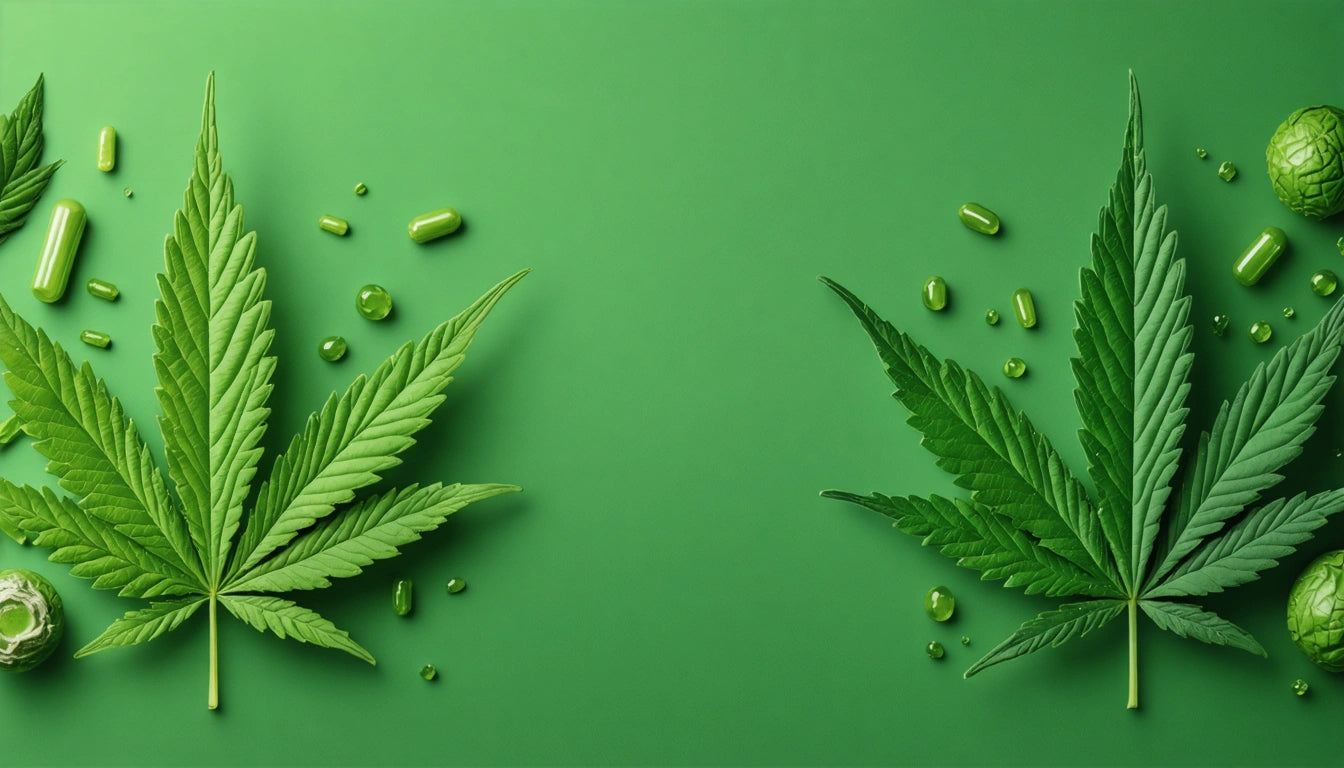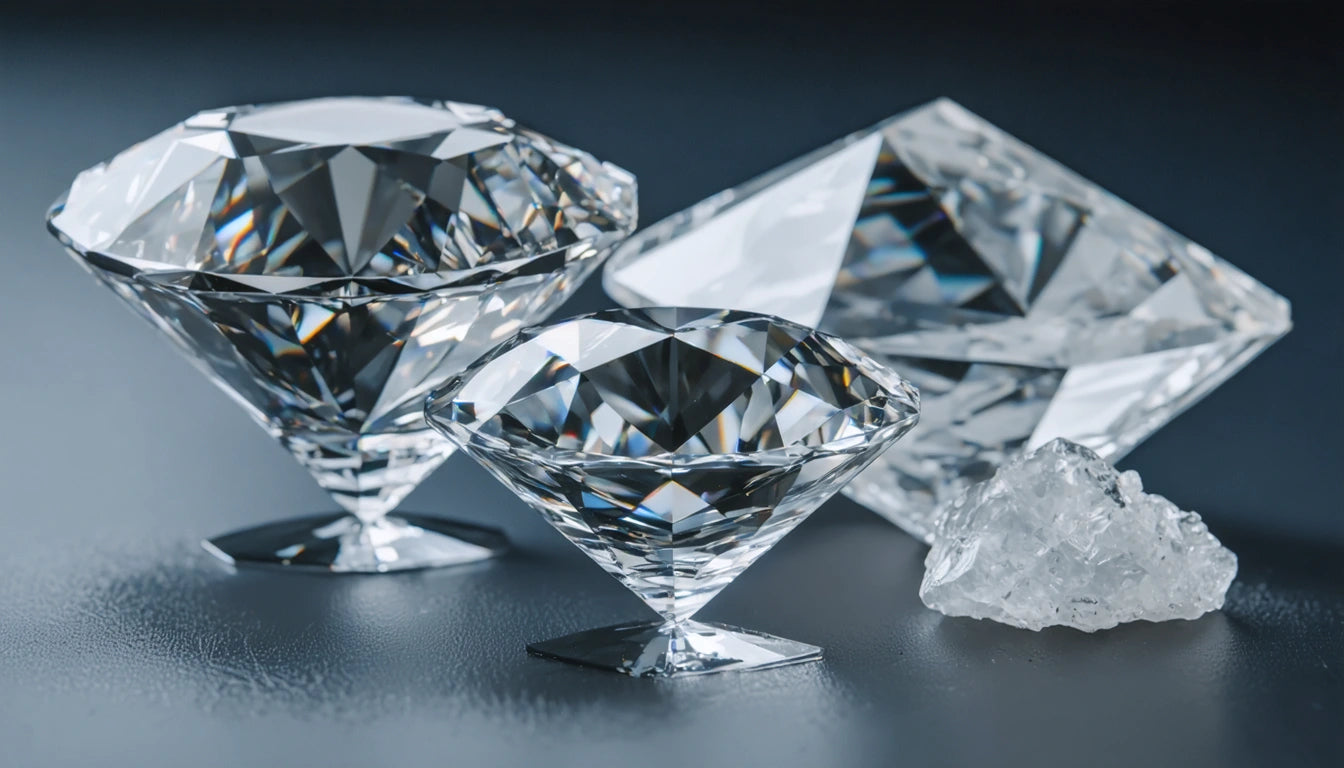Table of Contents
- Understanding Cannabinoids: The Cannabis Compound Family
- Delta-9 THC Explained: The Primary Psychoactive Compound
- THCa Explained: The Precursor Acid Form
- Key Differences Between Delta-9 THC and THCa
- Other Cannabinoids: Delta-8, Delta-10, and Beyond
- Legal Considerations: Hemp-Derived vs. Cannabis-Derived
- Practical Applications and Consumer Guidance
Understanding the Differences: Delta-9 THC vs. THCa and Other Cannabinoids
The cannabis plant contains over 100 cannabinoids, each with unique properties and effects. Among these, delta-9 THC and THCa often cause confusion due to their similar names but different characteristics. This guide explores the crucial distinctions between delta-9 THC vs THCa, their effects, legal status, and relationship to other cannabinoids.
Understanding Cannabinoids: The Cannabis Compound Family
Cannabinoids are chemical compounds that interact with the body's endocannabinoid system, influencing various physiological processes. They can be divided into phytocannabinoids (plant-derived) and endocannabinoids (produced within the body). The cannabis plant naturally produces these compounds in varying concentrations depending on strain genetics and growing conditions.
Delta-9 THC Explained: The Primary Psychoactive Compound
Delta-9 tetrahydrocannabinol (delta-9 THC) is the most well-known cannabinoid responsible for the psychoactive effects associated with cannabis. It binds primarily to CB1 receptors in the brain, producing the characteristic "high" feeling.
Key Properties of Delta-9 THC:
- Psychoactive effects including euphoria and altered perception
- Potential therapeutic benefits for pain, nausea, and appetite stimulation
- Subject to strict regulation in many jurisdictions
- Typically present in significant quantities in marijuana varieties
The potency of delta-9 THC varies widely across products. When considering how strong is 0.3 delta-9 THC, it's important to note this represents a very low concentration that typically produces minimal psychoactive effects, which is why this threshold is often used in legal definitions distinguishing hemp from marijuana.
THCa Explained: The Precursor Acid Form
Tetrahydrocannabinolic acid (THCa) is the non-psychoactive precursor to delta-9 THC. Fresh, raw cannabis contains primarily THCa rather than activated THC. When exposed to heat through a process called decarboxylation, THCa converts to delta-9 THC.
Key Properties of THCa:
- Non-psychoactive in its raw form
- Converts to delta-9 THC when heated (smoking, vaping, cooking)
- May offer anti-inflammatory and neuroprotective properties
- Predominant in fresh, unheated cannabis plant material
Understanding the differences between THCa vs delta-9 THC is crucial for consumers seeking specific effects or those who want to avoid psychoactive experiences.
Key Differences Between Delta-9 THC and THCa
Chemical Structure
The primary structural difference between these compounds is the presence of a carboxyl group (COOH) in THCa that is absent in delta-9 THC. This carboxyl group prevents THCa from binding effectively to CB1 receptors, explaining its lack of psychoactivity.
Psychoactivity
Delta-9 THC is psychoactive, while THCa is not. This fundamental difference impacts how products containing these cannabinoids are used and regulated. When comparing delta 9 vs THC-a effects, the former produces intoxication while the latter does not until converted.
Legal Status
The legal distinction between delta-9 THC and THCa varies by jurisdiction. In many places, laws focus on delta-9 THC content rather than total potential THC (including THCa). This has created some regulatory gray areas that manufacturers and consumers should be aware of.
Medical Applications
Both compounds show therapeutic potential, but for different conditions and through different mechanisms. Delta-9 THC has been researched for pain management, appetite stimulation, and nausea control, while THCa shows promise for inflammation and neurodegenerative conditions.
Other Cannabinoids: Delta-8, Delta-10, and Beyond
Beyond delta-9 THC and THCa, the cannabis plant contains numerous other cannabinoids with varying effects and potencies. Delta-8 THC, delta-10 THC, THCv, and others have gained attention for their unique properties.
Delta-8 THC vs. Delta-9 THC
Delta-8 THC is an isomer of delta-9 THC with a slightly different molecular structure. It produces milder psychoactive effects and is often described as providing a clearer-headed experience with less anxiety. When considering what is the strongest delta THC, delta-9 is typically more potent than delta-8.
THCv and Other Variants
Tetrahydrocannabivarin (THCv) differs from delta-9 THC in its effects and potential applications. When comparing THCv vs delta 9, THCv is noted for potentially suppressing appetite rather than stimulating it and may produce a more energetic, clear-headed effect.
For those interested in exploring different cannabinoid experiences, pre-rolled custom cones with specific cannabinoid profiles offer a convenient way to sample various formulations without investing in larger quantities.
Legal Considerations: Hemp-Derived vs. Cannabis-Derived
The legal landscape surrounding cannabinoids is complex and evolving. Understanding the difference between hemp derived THC vs delta 9 from marijuana is crucial for compliance.
The 0.3% Delta-9 THC Threshold
In the United States, hemp is legally defined as cannabis containing no more than 0.3% delta-9 THC by dry weight. This distinction explains why is delta 9 legal but not THC in some contexts, though this is a simplification of complex regulations.
Hemp-Derived Delta-9 THC
Products containing delta-9 THC derived from hemp may be legal in some jurisdictions if they contain less than 0.3% delta-9 THC by dry weight. This has led to the development of hemp delta 9 vs THC products with specific formulations designed to comply with these regulations.
For a deeper understanding of the regulatory distinctions, explore this comparison between delta-9 and traditional cannabis.
Practical Applications and Consumer Guidance
When navigating the world of cannabinoids, consumers should consider their desired effects, legal status in their region, and personal sensitivity. Delta-9 THC vs regular THC is often a confusing comparison since "regular THC" typically refers to delta-9 THC itself, though sometimes people use this term to distinguish dispensary cannabis from hemp-derived products.
For those concerned about potency, understanding what is a high level of delta-9 THC is important. Cannabis flower typically contains between 15-25% delta-9 THC, with concentrates reaching 60-90%. By comparison, legal hemp products must contain less than 0.3% delta-9 THC, though they may contain higher levels of other cannabinoids.
When selecting products, consider:
- Desired effects (psychoactive vs. non-psychoactive)
- Legal status in your jurisdiction
- Product testing and verification
- Personal tolerance and sensitivity
- Potential drug testing implications
As research continues to advance our understanding of cannabinoids, consumers have more options than ever for tailoring their cannabis experience to their specific needs and preferences.











Leave a comment
All comments are moderated before being published.
This site is protected by hCaptcha and the hCaptcha Privacy Policy and Terms of Service apply.